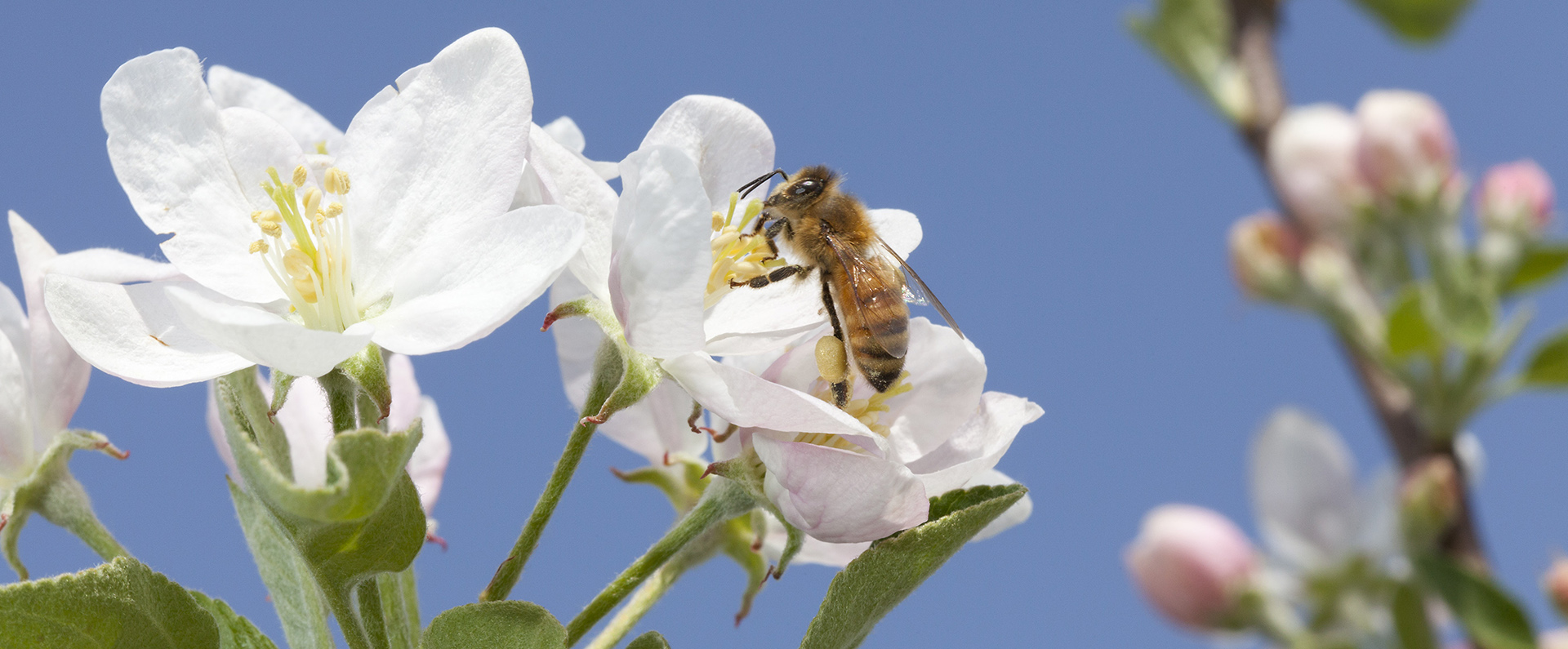A “Gut Check” for Improved Honey Bee Health
Let's face it, honey bees are the rock stars of the pollinator world. Their busy, fastidious collection of nectar and pollen from nearly 100 different kinds of flowering crops—including apples, cherries, and almonds—contributes $22 billion to the yield and quality of our Nation's agriculture.
But life isn't always easy for our honey bee buddies. They face sundry threats, including from varroa mites, pesticide exposure, and poor nutrition.
Among research pursuits to give them a helping hand, ARS researchers in Tucson, AZ, have focused attention on the honey bee “microbiome”—the bacteria and other microbes that inhabit the insect's gut.
The researchers found a close connection between the microbiome's make up and the physiology of honey bee aging and stress. For example, as queens age, the levels of certain kinds of bacteria increase, while others diminish. This can exert a profound effect on the queen's and her colony's overall health.
Besides a useful roadmap to improved methods of queen rearing, hive nutrition, and management, the researchers' microbiome findings may offer an excellent model for similar studies in other species, including humans.



